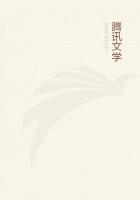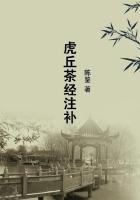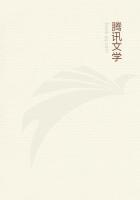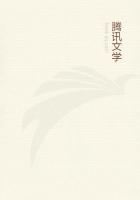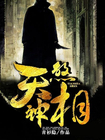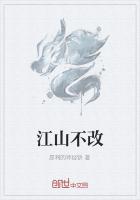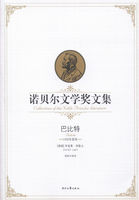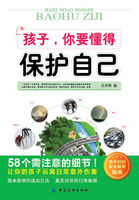He first stoops and holds it near the ground, and all the men forming the ring take off their hats, stooping and holding them with both hands towards the ground. They then all begin at once in a very prolonged and harmonious tone to cry 'The neck!' at the same time slowly raising themselves upright, and elevating their arms and hats above their heads; the person with 'the neck' also raising it on high. This is done three times. They then change their cry to 'Wee yen!''Way yen!'which they sound in the same prolonged and slow manner as before, with singular harmony and effect, three times. This last cry is accompanied by the same movements of the body and arms as in crying 'the neck.' After having thus repeated 'the neck' three times, and 'wee yen,' or 'way yen' as often, they all burst out into a kind of loud and joyous laugh, flinging up their hats and caps into the air, capering about and perhaps kissing the girls. One of them then gets 'the neck' and runs as hard as he can down to the farmhouse, where the dairymaid, or one of the young female domestics, stands at the door prepared with a pail of water. If he who holds 'the neck' can manage to get into the house, in any way unseen, or openly, by any other way than the door at which the girl stands with the pail of water, then he may lawfully kiss her; but, if otherwise, he is regularly soused with the contents of the bucket. On a fine still autumn evening the 'crying of the neck' has a wonderful effect at a distance, far finer than that of the Turkish muezzin, which Lord Byron eulogises so much, and which he says is preferable to all the bells of Christendom. I have once or twice heard upwards of twenty men cry it, and sometimes joined by an equal number of female voices. About three years back, on some high grounds, where our people were harvesting, I heard six or seven 'necks' cried in one night, although I know that some of them were four miles off. They are heard through the quiet evening air at a considerable distance sometimes. Again, Mrs. Bray tells how, travelling in Devonshire, she saw a party of reapers standing in a circle on a rising ground, holding their sickles aloft. One in the middle held up some ears of corn tied together with flowers, and the party shouted three times (what she writes as) 'Arnack, arnack, arnack, we haven, we haven, we haven.' They went home, accompanied by women and children carrying boughs of flowers, shouting and singing. The manservant who attended Mrs. Bray said 'it was only the people making their games, as they always did, to the spirit of harvest.' Here, as Miss Burne remarks, 'arnack, we haven!' is obviously in the Devon dialect, 'a neck (or nack)! we have un!'
Another account of this old custom, written at Truro in 1839, runs thus:
Now, when all the corn was cut at Heligan, the farming men and maidens come in front of the house, and bring with them a small sheaf of corn, the last that has been cut, and this is adorned with ribbons and flowers, and one part is tied quite tight, so as to look like a neck. Then they cry out 'Our (my) side, my side,' as loud as they can; then the dairymaid gives the neck to the head farming-man. He takes it, and says, very loudly three times, 'I have him, I have him, I have him.' Then another farming-man shouts very loudly, 'What have ye? what have ye? what have ye?' Then the first says, 'A neck, a neck, a neck.' And when he has said this, all the people make a very great shouting.
This they do three times, and after one famous shout go away and eat supper, and dance, and sing songs. According to another account, all went out to the field when the last corn was cut, the 'neck' was tied with ribbons and plaited, and they danced round it, and carried it to the great kitchen, where by-and-by the supper was. The words were as given in the previous account, and 'Hip, hip, hack, heck, I have 'ee, I have 'ee, I have 'ee.' It was hung up in the hall. Another account relates that one of the men rushed from the field with the last sheaf, while the rest pursued him with vessels of water, which they tried to throw over the sheaf before it could be brought into the barn.
In the foregoing customs a particular bunch of ears, generally the last left standing, is conceived as the neck of the corn-spirit, who is consequently beheaded when the bunch is cut down. Similarly in Shropshire the name neck, or the gander's neck, used to be commonly given to the last handful of ears left standing in the middle of the field when all the rest of the corn was cut. It was plaited together, and the reapers, standing ten or twenty paces off, threw their sickles at it. Whoever cut it through was said to have cut off the gander's neck. The neck was taken to the farmer's wife, who was supposed to keep it in the house for good luck till the next harvest came round. Near Trèves, the man who reaps the last standing corn cuts the goat's neck off. At Faslane, on the Gareloch (Dumbartonshire), the last handful of standing corn was sometimes called the head. At Aurich, in East Friesland, the man who reaps the last corn cuts the hare's tail off. In mowing down the last corner of a field French reapers sometimes call out, We have the cat by the tail. In Bresse (Bourgogne) the last sheaf represented the fox. Beside it a score of ears were left standing to form the tail, and each reaper, going back some paces, threw his sickle at it. He who succeeded in severing it cut off the fox's tail, and a cry of You cou cou! was raised in his honour. These examples leave no room to doubt the meaning of the Devonshire and Cornish expression the neck, as applied to the last sheaf.
The corn-spirit is conceived in human or animal form, and the last standing corn is part of its bodyits neck, its head, or its tail. Sometimes, as we have seen, the last corn is regarded as the navel-string. Lastly, the Devonshire custom of drenching with water the person who brings in the neck is a raincharm, such as we have had many examples of. Its parallel in the mysteries of Osiris was the custom of pouring water on the image of Osiris or on the person who represented him.

